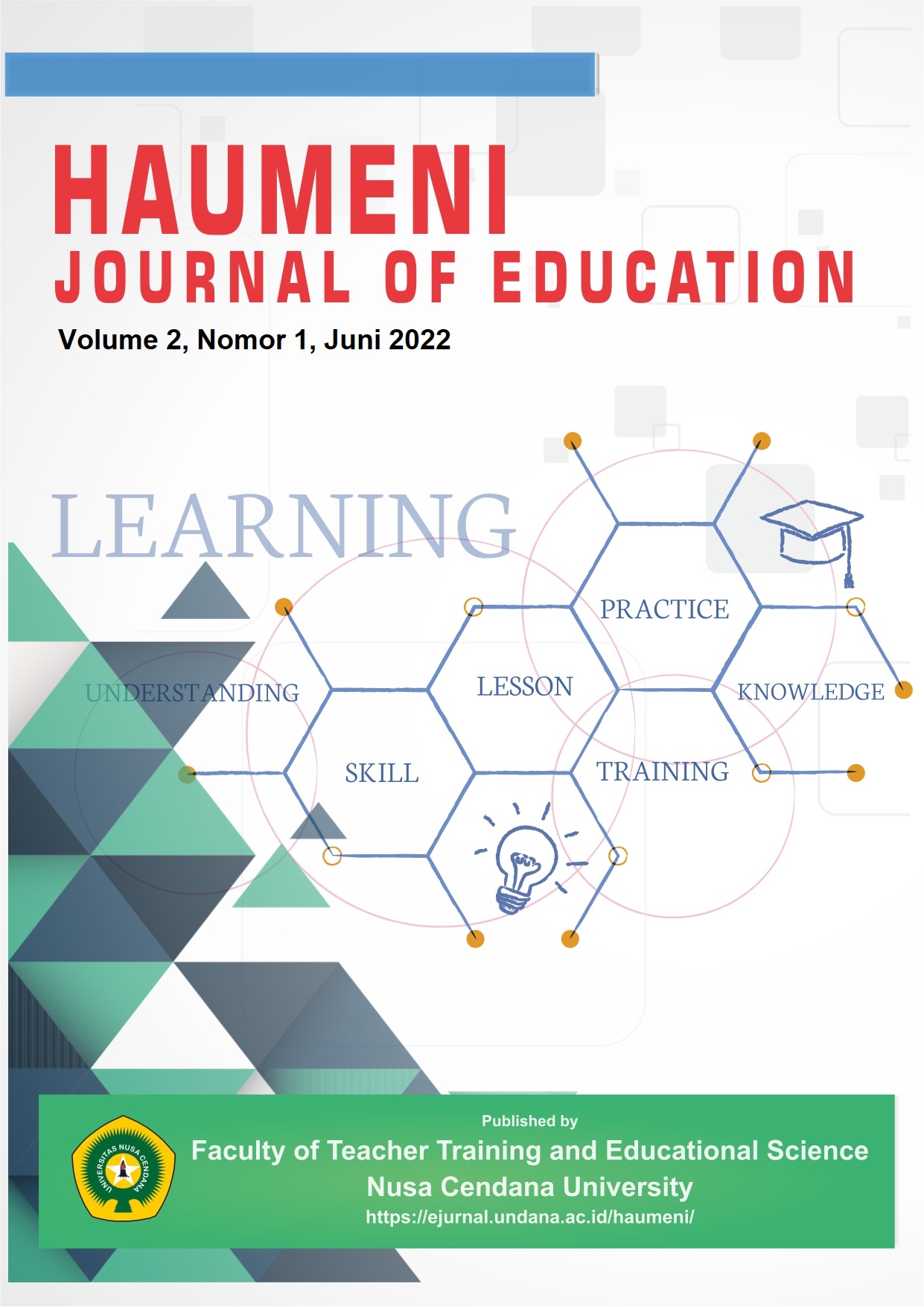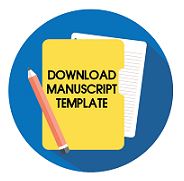Pendapat Mahasiswa Pendidikan Matematika Tentang Pembelajaran Online Dengan Menggunakan Pen Tablet Dan Aplikasi OneNote?
Abstract
This study aims to determine the opinion of students of the Mathematics Education Study Program at the Nusa Cendana University about online learning using a pen tablet and the OneNote application. This is a quantitative descriptive study with a survey method. Data were collected using a Likert scale 1-5 questionnaire (strongly disagree-strongly agree) consisting of 10 positive statements as representatives of three indicators: conceptual understanding, usefulness and satisfaction, and student satisfaction in participating in the online lecture process. The data sources were one hundred and ten students of the Mathematics Education Study Program, FKIP Nusa Cendana University. Data analysis was carried out in 3 phases: calculating the cumulative score, calculating the assessment index, then proceeding with categorization according to the criteria. The results found are as follows: first, students agree that the use of these two tools contributes positively to several aspects of understanding concepts and students' convenience in participating in the online lecture process. Second, students strongly agree that the use of these two tools also contributes positively to several aspects of understanding concepts, convenience, and the usefulness and satisfaction of students in participating in the online lecture process when compared to online lectures without these two tools.
Downloads
References
Ally, M. (2008). Foundation for educational theory for online learning. In T. Anderson (Ed.). The Theory and Practice of Online Learning, Second Edition (pp. 1-120). Edmonton, Canada: AU Press.
Ario, M., Annajmi, A., Isharyadi, R. (2020). Pengembangan Video Pembelajaran Kalkulus Diferensial Berbasis Pen Tablet. Jurnal Cendekia Jurnal Pendidikan Matematika 4(2), 1129-1142. doi:10.31004/cendekia.v4i2.363
Belawati, T. (2020). Pembelajaran Online. Banten: Penerbitan Universitas Terbuka
Blegur, I. K. S., Oktaviani, N., & Retnowati E. (2017). Apakah strategi goal-free dapat memfasilitasi literasi matematika siswa?. Prosiding Seminar Nasional Matematika Dan Pendidikan Matematika 2011: Membudayakan Liiterasii Matematiika dii Era Digital, 359-364. Yogyakarta: Universitas Negeri Yogyakarta
Blegur, I. K. S. (2020). Studi Fenomenologi: Problematika Mahasiswa Asing Belajar Statistika di Perguruan Tinggi. Fraktal: Jurnal Matematika Dan Pendidikan Matematika 1(1), 56-67. https://doi.org/10.35508/fractal.v1i1.3048
Chen, C.-H., Chiu, C.-H., Lin, C.-P., & Chou, Y.-C. (2017). Students’ attention when using touchscreens and pen tablets in a mathematics classroom. Journal of Information Technology Education: Innovations in Practice, 16, 91-106.
Creswell, J.W. (2016). Research Design: pendekatan metode Kualitatif, Kuantitaif dan campuran (terjemahan). Yogyakarta : Pustaka Pelajar
Ebel, R. L., & Frisbie, D. A. (1991). Essentials of educational measurement (5th ed.). New York, NY: Prentice hall
Gable, R.,K. (1986). Instrument development in the affective domain. New York, NY: Springer
Kalyuga, S. (2009). Managing cognitive load in adaptive multimedia learning. United Kingdom: IGI Global
Major, L., Hassler, B. & Hennessy, S. (2017). Tablets in schools: impact, affordances and recommendations. Handbook for Digital Learning in K-12 Schools (pp. 115-128). Marcus Quinn, A. & Hourigan, T. (Eds). Springer.
Mayer, R. E. (2002). Rote versus meaningful learning. Theory Into Practice, 41(4), 226-232. doi:10.1207/s15430421tip4104_4
Mayer, R. E., (2003). The promise of multimedia learning: using the same instructional design methods across different media, Learning and Instruction, 13(2), 125-139. https://doi.org/10.1016/S0959-4752(02)00016-6.
Rajiman, W., Samsinar, S. (2022). Efektivitas Penggunaan Pen Tablet Berbasis Zoom terhadap Minat Belajar Matematika Ekonomi di Masa Pandemi Covid-19 Mahasiswa Jurusan Ekonomi Pembangunan. JPMR 7 (1), 75-83
Retnowati, E. (2008). Keterbatasan memori dan implikasinya dalam mendesain metode pembelajaran matematika. Prosiding Seminar Nasional Matematika dan Pendidikan Matematika. Yogyakarta: Jurdik Matematika FMIPA UNY.
Retnowati, E. (2016). Faded example as a tool to acuire and automate mathematics knowledge. International Conference on Mathematics, Science, and Education.
Sweller, J., Ayres, P., & Kalyuga, S. (2011). Cognitive load theory. New York, NY: Springer
Wulandari, S., Rahmalina W., Martin S. N, Yuniarti, L. (2021). Respon Terhadap Penggunaan Stylus Pen Dan Fitur Record Dalam Pembelajaran Matematika Online. GAUSS: Jurnal Pendidikan Matematika 4(2), 62-76. http://dx.doi.org/10.30656/gauss.v4i2.3164

 Irna Karlina Sensiana Blegur(1*)
Irna Karlina Sensiana Blegur(1*)







